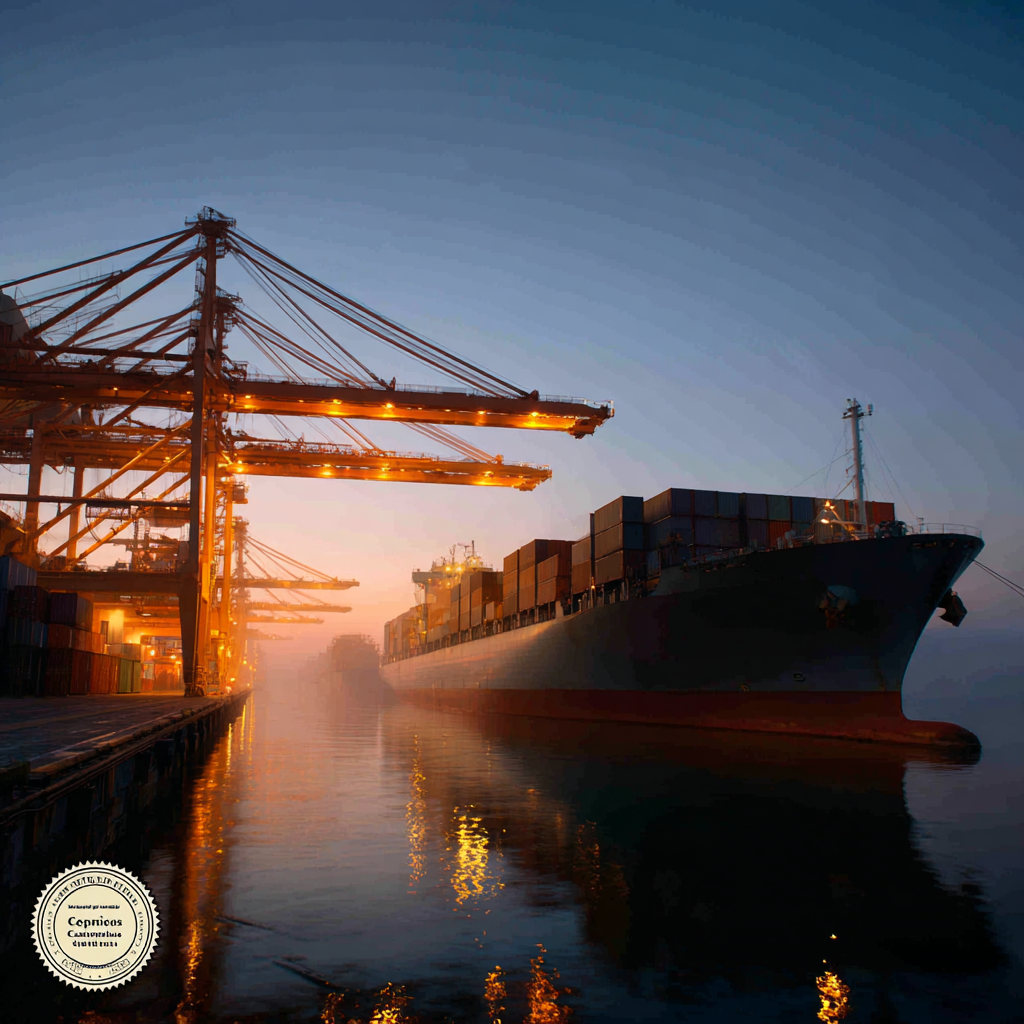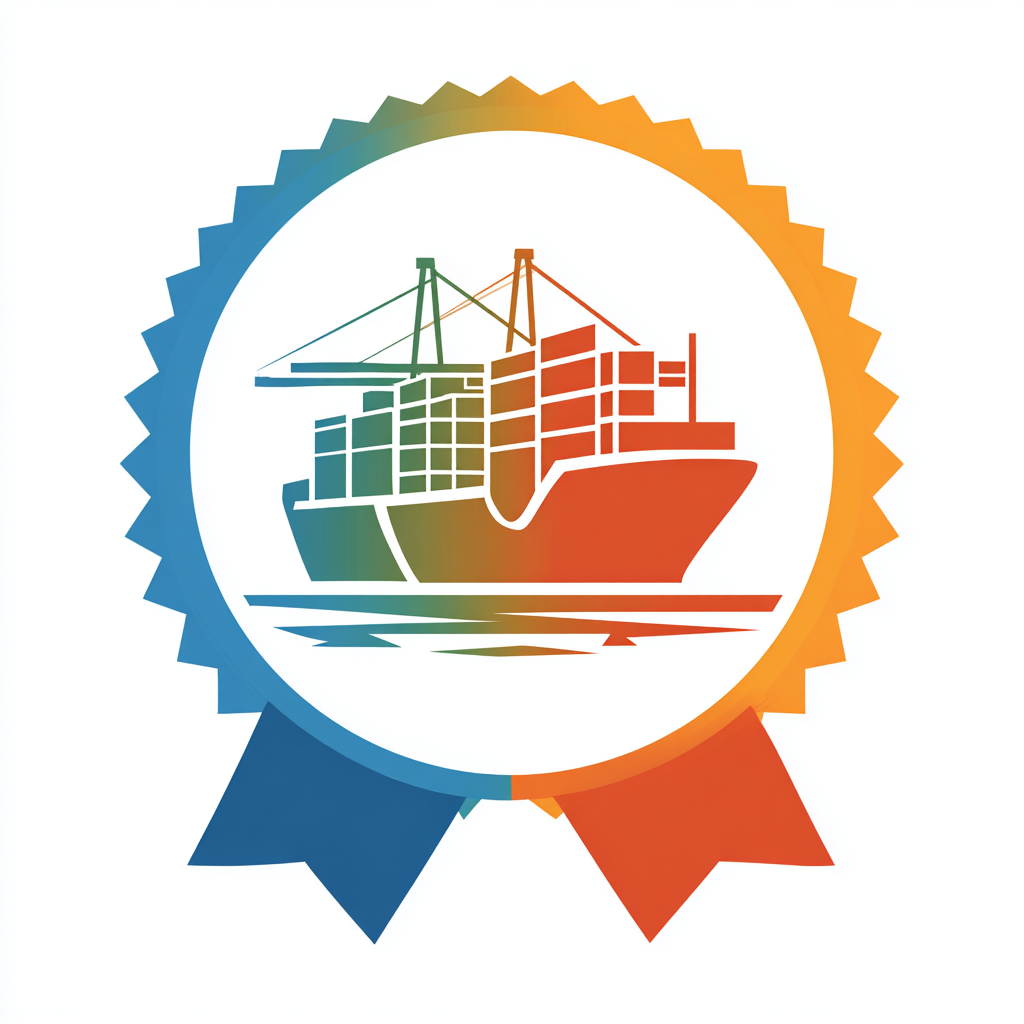
Top 15 Industry Import and Export Certifications for Best Suppliers
In today's global marketplace, suppliers are under increasing pressure to demonstrate compliance with various import and export certifications, which not only enhance credibility but also ensure adherence to industry standards. According to a recent report by the World Trade Organization, compliance with updated certifications can lead to a 20% increase in trade efficiency and a 15% reduction in operational costs for businesses. As industries evolve and regulations become more stringent, suppliers must navigate a complex landscape of certifications to maintain a competitive edge. This blog explores the top 15 industry import and export certifications that can empower suppliers to not only meet regulatory requirements but also build trust with customers and partners worldwide. By investing in these certifications, suppliers can position themselves as leaders in quality assurance and operational excellence, ultimately driving success in their sectors.

Importance of Industry Certifications in Import and Export
Industry certifications play a crucial role in the import and export landscape, serving as vital indicators of a supplier's credibility and reliability. These certifications not only assure businesses of compliance with international standards but also enhance the overall quality of products and services. For importers and exporters, partnering with certified suppliers mitigates risks associated with trade, ensuring that goods meet safety, environmental, and quality benchmarks. This is particularly important in highly regulated sectors such as food, pharmaceuticals, and electronics, where non-compliance can lead to severe consequences.
In addition to instilling confidence in buyers, industry certifications can also be a powerful marketing tool for suppliers. They differentiate certified companies from their competitors, allowing them to demonstrate their commitment to quality and regulatory adherence. As a result, certified suppliers often enjoy better access to international markets, as many buyers prioritize working with partners who hold recognized certifications. Consequently, investing in these certifications not only strengthens a supplier's market position but also bolsters the overall integrity of the global supply chain.
Top 15 Industry Import and Export Certifications for Best Suppliers
| Certification Name | Issuing Body | Importance | Applicable Industry |
|---|---|---|---|
| ISO 9001 | International Organization for Standardization | Quality Management Systems | All Industries |
| ISO 14001 | International Organization for Standardization | Environmental Management | Manufacturing, Construction |
| CE Marking | European Commission | Product Safety | Electronics, Toys, Medical Devices |
| FDA Approval | U.S. Food and Drug Administration | Food and Drug Safety | Food, Pharmaceuticals |
| OHSAS 18001 | BSI Group | Occupational Health and Safety | All Industries |
| ISO 22000 | International Organization for Standardization | Food Safety Management | Food Industry |
| BRC Global Standards | British Retail Consortium | Food Safety | Food Packaging |
| GMP Certification | Various Certifying Bodies | Manufacturing Best Practices | Pharmaceuticals, Food |
| SA8000 | Social Accountability International | Social Responsibility | Textiles, Manufacturing |
| ISO 50001 | International Organization for Standardization | Energy Management | All Industries |
| NIST Cybersecurity Framework | National Institute of Standards and Technology | Cybersecurity Risk Management | IT, Finance |
| RoHS Compliance | European Union | Restriction of Hazardous Substances | Electronics, Electrical Equipment |
| ISO 13485 | International Organization for Standardization | Medical Devices Quality Management | Healthcare, Pharmaceuticals |
| TSA Certification | Transportation Security Administration | Security Standards | Aviation, Transportation |
Key Certifications for Quality Assurance in Global Trade
In the rapidly evolving landscape of global trade, quality assurance is paramount for suppliers looking to establish credibility and trust with clients across borders. Key certifications serve as benchmarks of quality and efficiency, ensuring that products meet international standards. Among the most critical certifications are ISO 9001, which verifies a company’s commitment to quality management systems, and the CE mark, indicating conformity with health, safety, and environmental protection standards in the European market. Such certifications not only enhance product value but also open doors to new markets and opportunities.
Additionally, industry-specific certifications like HACCP for food safety and RoHS for electronics play a crucial role in building a supplier's reputation. These certifications demonstrate adherence to strict regulatory requirements, reassuring customers of the safety and reliability of the products they purchase. As global consumers become increasingly informed and concerned about product quality and environmental impact, possessing recognized certifications can significantly enhance a supplier’s competitive edge in the international arena. Implementing a robust certification strategy is essential for suppliers aiming to thrive in a complex and interconnected marketplace.
Navigating Compliance: Essential Certifications for Suppliers
Navigating compliance in today’s global marketplace is crucial for suppliers aiming to establish their credibility and optimize their operations. Certifications not only guarantee adherence to industry standards but also enhance competitiveness. According to a report from the International Organization for Standardization (ISO), businesses that implement standardized policies see a 20% increase in operational efficiency. This highlights the importance of certifications as a foundational element for suppliers looking to thrive.
Moreover, specific certifications can open new market opportunities. For instance, the Global Food Safety Initiative (GFSI) certification can result in a 10% increase in client acquisition, as reported by the Food Industry Association. In industries ranging from manufacturing to food production, compliance with certifications like ISO 9001, GFSI, and others is not just beneficial, but often a prerequisite for doing business. As suppliers navigate through varying regulations, maintaining relevant certifications will not only help them meet legal requirements but also build trust and reliability in the eyes of consumers and partners alike.
Top 15 Industry Import and Export Certifications for Best Suppliers
Top Certifications for Sustainability in Import and Export Sectors
Sustainability certification has become a focal point in the import and export sectors, driven by global regulatory frameworks and market demands. The sustainability certification market is projected to see significant revenue growth between 2025 and 2030, largely influenced by increasing consumer awareness and regulatory pressures regarding climate impact, material sustainability, and energy management. This trend is particularly evident in industries such as solar energy, where voluntary environmental regulations are enhancing export performance, especially in markets like China.

Moreover, the forthcoming European Union regulations—such as the Corporate Sustainability Reporting Directive (CSRD)—are pushing companies toward comprehensive sustainability reporting. Regulations around circularity, supply chain management, and decarbonization are crucial for compliance and competitiveness. As countries like Brazil prepare to adopt full traceability in beef production by 2032, it underscores a broader trend toward transparency and accountability in supply chains, ensuring that imports and exports align with sustainability objectives. With strategic certifications, businesses can not only enhance their reputation but also tap into lucrative markets that prioritize eco-friendly practices.
Evaluating Supplier Credibility: A Guide to Industry Certifications
In today's digital transformation era, the role of industry certifications in evaluating supplier credibility is increasingly significant. Certifications serve as benchmarks of reliability and quality, enabling businesses to swiftly identify trustworthy suppliers. As industries adapt to evolving standards and technologies, certifications provide assurance that suppliers adhere to specific regulations and best practices, fostering confidence in the procurement process.
The launch of initiatives such as the credit rating evaluation for electrical and mechanical import and export enterprises exemplifies the ongoing commitment to enhancing supplier credibility. By building a robust framework for credit assessments, businesses can more effectively engage in international trade and collaboration. Furthermore, guidelines for green procurement highlight the growing importance of sustainability in supplier evaluation, encouraging companies to adopt environmentally-friendly practices and contribute to a resource-efficient economy. These guidelines not only promote ethical sourcing but also prepare suppliers for the challenges of future markets, ensuring they remain competitive and responsible.

